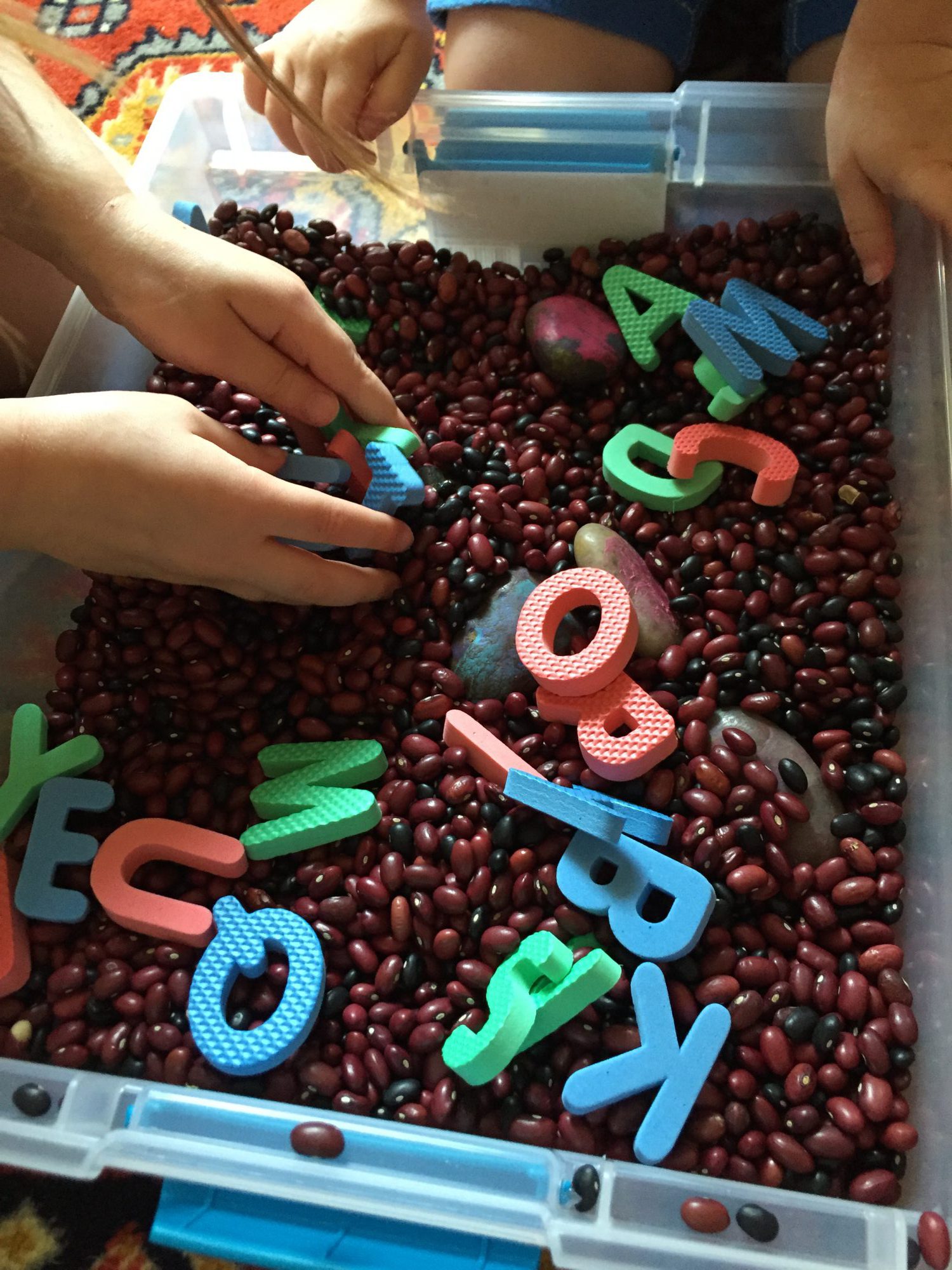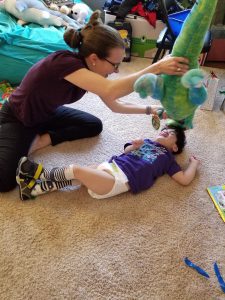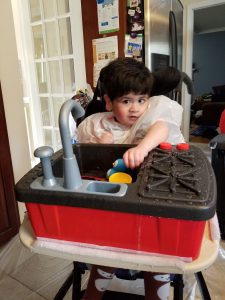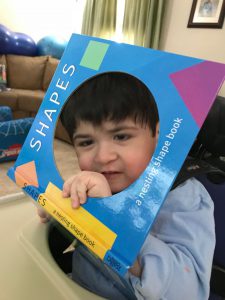
I love when I find a simple picture book that gives so many great opportunities to model using Joey’s AAC device (and builds in some academic skills as well!). My most recent discovery is Oops! Pounce! Quick! Run! By Mike Twohy.
Oops! Pounce! Quick! Run! is an alphabet book, with each page giving just one or two words in alphabetic order to tell a story. It opens with a mouse Asleep, when suddenly a Ball bounces onto his lap, forcing him to Catch it. He is quickly stalked by a Dog, who sticks his Eye into the mouse hole. Upon seeing his ball, he sticks his Feet in. You get the idea. It’s simple, yet tells a clear (but silly) story about a dog and a mouse having a fight over a ball. What’s more, it uses many of the words on Joey’s AAC device, or at least provides an opportunity to use additional core words that are not in the book. [Read more…]

 In the past few weeks we’ve looked at the
In the past few weeks we’ve looked at the  Often, when I work with Joey, I bring a book along with toy animals and props so that we can act out the book together. What I often want is to engage Joey in symbolic play during or after we’ve read the book.
Often, when I work with Joey, I bring a book along with toy animals and props so that we can act out the book together. What I often want is to engage Joey in symbolic play during or after we’ve read the book.  I opened the cover of the shape book, held it up to my face, and gave Joey a quick smile through the cut out circle in the cover of the book. I’m not sure why I did it, but in the moment it had seemed like a silly interaction between reading different books. Not thinking anymore about it, I placed the book on his tray and turned around to get something else. When I turned back to Joey, he was holding the book up and grinning at me through the hole, with his eyes sparkling playfully. He quickly lost his grip on the awkward book, but he worked to turn the book from side to side and try to get his head back through the hole in the cover. He giggled and laughed throughout this experience, proud of himself for copying my joke, for surprising me, and for managing to get the book up in front of his face so many times.
I opened the cover of the shape book, held it up to my face, and gave Joey a quick smile through the cut out circle in the cover of the book. I’m not sure why I did it, but in the moment it had seemed like a silly interaction between reading different books. Not thinking anymore about it, I placed the book on his tray and turned around to get something else. When I turned back to Joey, he was holding the book up and grinning at me through the hole, with his eyes sparkling playfully. He quickly lost his grip on the awkward book, but he worked to turn the book from side to side and try to get his head back through the hole in the cover. He giggled and laughed throughout this experience, proud of himself for copying my joke, for surprising me, and for managing to get the book up in front of his face so many times.  lay: why it is important, how it develops, and what this means for Joey
lay: why it is important, how it develops, and what this means for Joey
